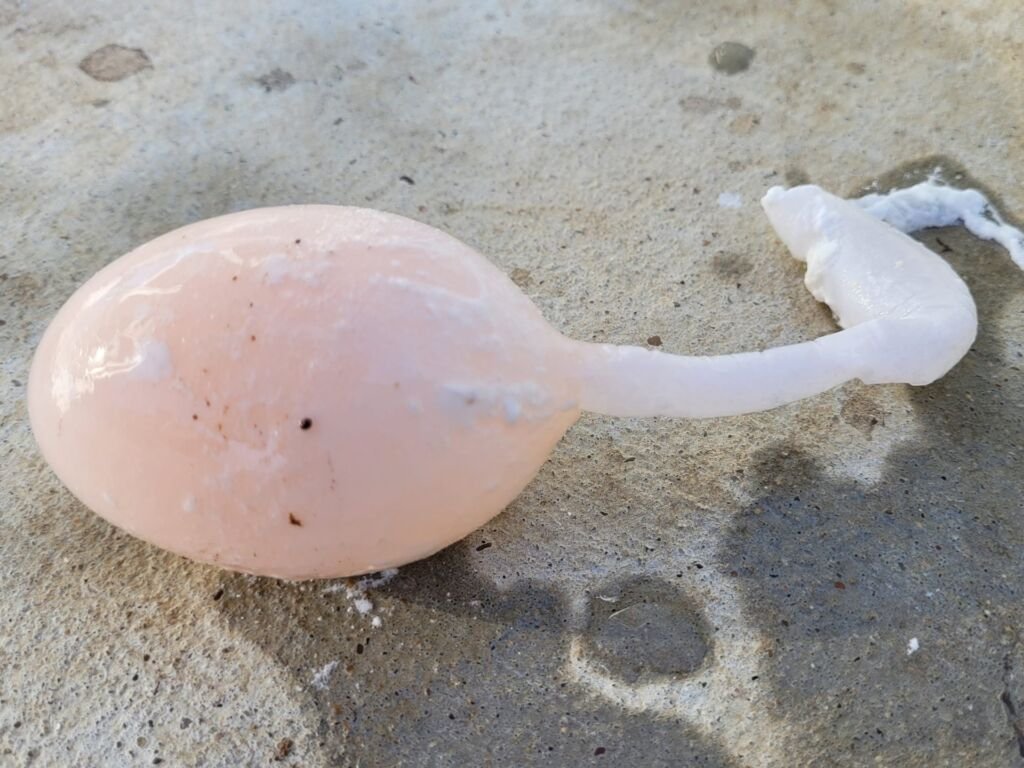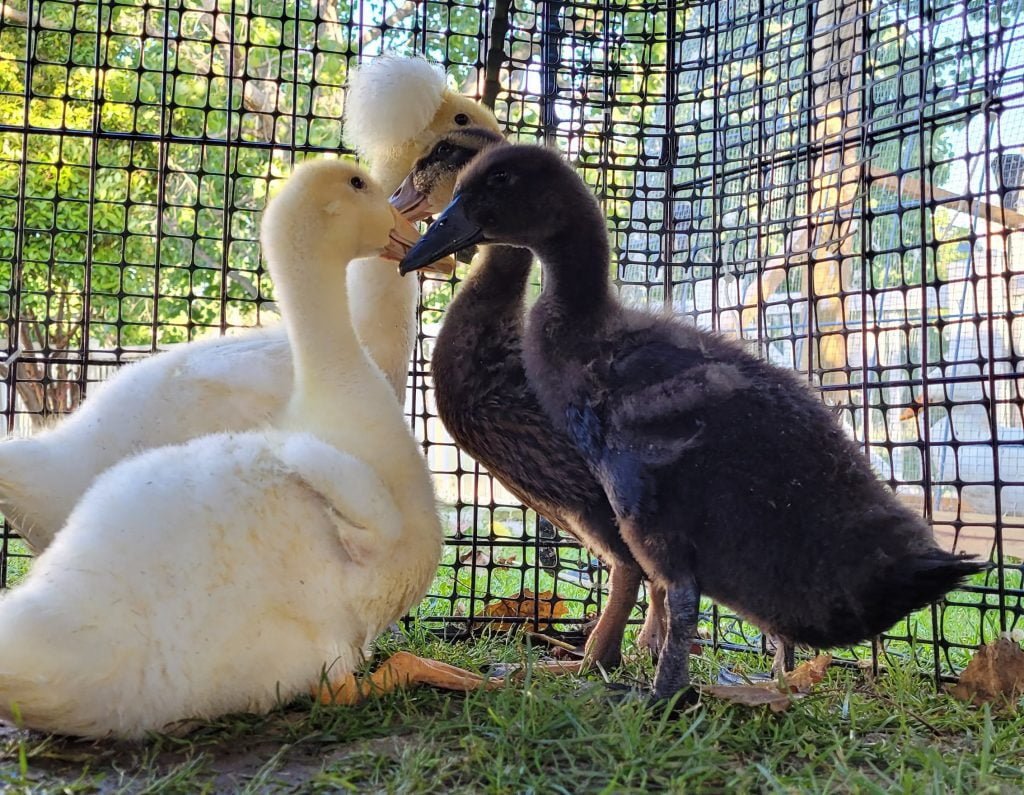Last updated on July 16th, 2024 at 06:23 pm
I hope that you agree that having a first aid kit on hand for your ducks is a good idea, just like it is for any pet. This way, you can be prepared for minor injuries and ailments that may happen from time to time. While you can’t get a first aid kit specifically designed for ducks, you can assemble your own kit using readily available items.
In this blog post, we will review all the items in our first aid kit that have proven to be very useful. I have grouped them by category so that it is easier for you to find what you are looking for.
Beyond that, I have simplified the process for you by compiling a list on our Amazon storefront containing (nearly) all the items mentioned below.
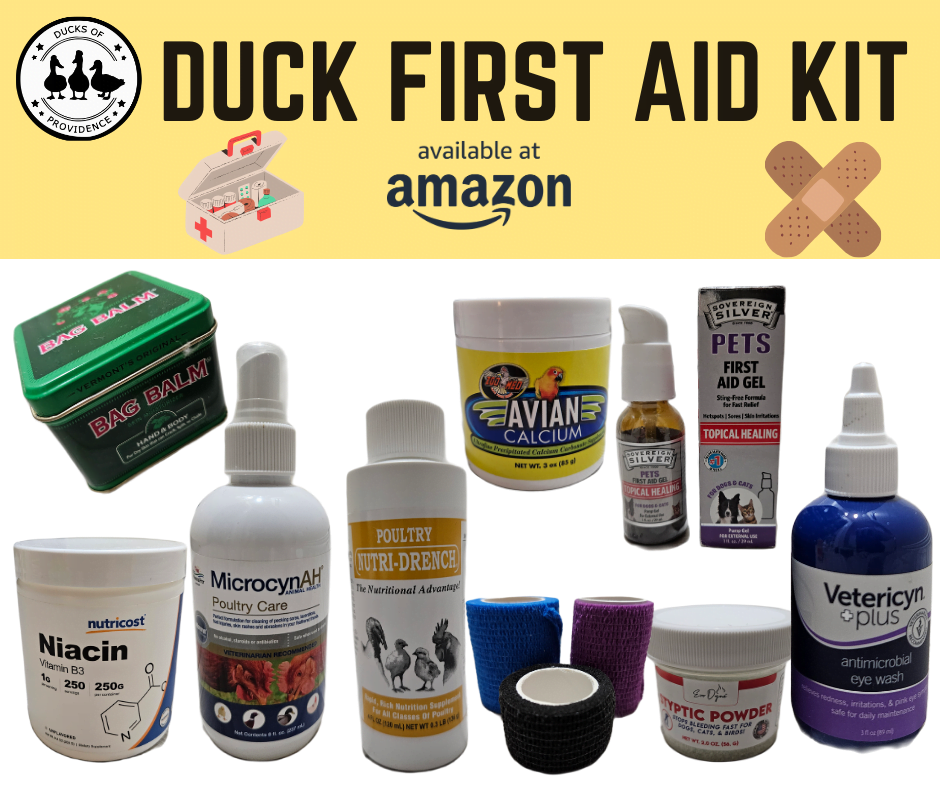
Disclaimer: I may earn a commission if you buy products or services through my affiliate links. This will not affect the price you pay. I only recommend products or services that I believe will be beneficial to my readers.
Here are 29 items that you should include in your duck first aid kit, ordered by category:
Essentials: Foundational Components of Your Duck First Aid Kit
When it comes to caring for our feathered companions, preparation is key. The items listed below serve as the cornerstone of your duck first aid kit, ensuring you’re always equipped to handle any unexpected bumps or quack-ups along the way. These essential supplies are primarily disposable, meaning they should be replenished regularly to maintain your duck’s health and safety.
1. Veterinary Contact Information:
Keep your avian veterinarian’s contact details handy for quick access in emergencies. This will ensure prompt and expert care for your ducks when needed. Having this information readily available will save precious time in critical situations, allowing you to get the help your duck needs without delay.
Don’t have an avian vet yet? Duck DVM has a comprehensive directory.
2. Sterile Gauze Pads:
These are vital for covering wounds and applying pressure to stop bleeding, providing essential first aid for cuts, scrapes, or injuries your ducks may encounter. Ducks, especially if they roam outdoors, can occasionally get small cuts or scrapes that need immediate attention to prevent infection and promote healing.
3. Vet Wrap:
Ideal for securing dressings without sticking to feathers, ensuring comfortable and effective bandaging for your ducks’ injuries. It’s versatile and easy to use, providing reliable support for injured areas while allowing your ducks to move comfortably. Vet wrap comes in different sizes and colors. We always have the one and 2-inch sizes in our duck first aid kit.
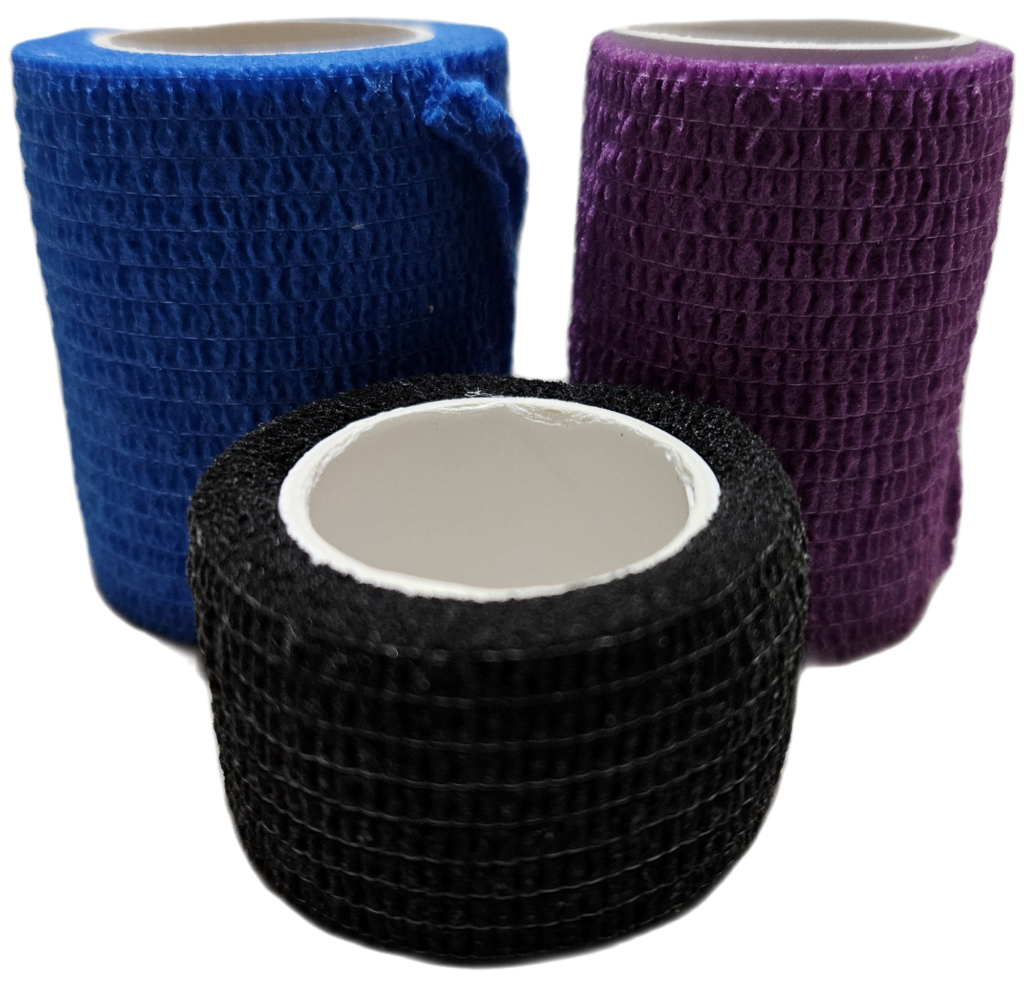
4. Sterile Saline Solution:
This solution is invaluable for rinsing eyes or cleaning wounds in ducks. It helps prevent infection and promote healing. Whether it’s debris in the eye or a small wound, saline solution is gentle and safe for use on ducks, providing effective cleansing without irritation.
5. Disposable Gloves:
They are essential for maintaining hygiene while attending to your duck’s injuries, protecting both you and your feathered friend from potential contamination. Disposable gloves provide a barrier against germs and bacteria, reducing the risk of infection during first-aid procedures.
6. Puppy Pads:
These can serve as absorbent bedding in an emergency, providing a clean and comfortable surface for your duck to rest on if needed. Whether it’s for a makeshift nest or to line the bottom of a transport carrier, puppy pads are convenient for keeping your duck comfortable and dry during stressful situations.
7. Scissors with Rounded Tips:
Safety is paramount when trimming feathers or cutting bandages around your duck’s delicate skin, making rounded-tip scissors a must-have. They allow for precise trimming without the risk of accidental cuts or injuries, ensuring safe and effective grooming for your ducks.
8. Tweezers:
Tweezers are handy for removing small debris or foreign objects from wounds without causing further injury to your duck. Whether it’s a thorn, splinter, or insect sting, tweezers provide a precision grip for safe and efficient removal, helping to prevent infection and discomfort for your duck. We have a student surgical set that has scissors, tweezers, and other useful tools like scalpels.
9. Syringes without Needles:
They are useful for administering oral medications or fluids accurately, ensuring your duck gets the care it needs during illness or injury. They allow for precise dosage measurement and easy delivery, making medication administration less stressful for both you and your duck. We got ours from the vet.
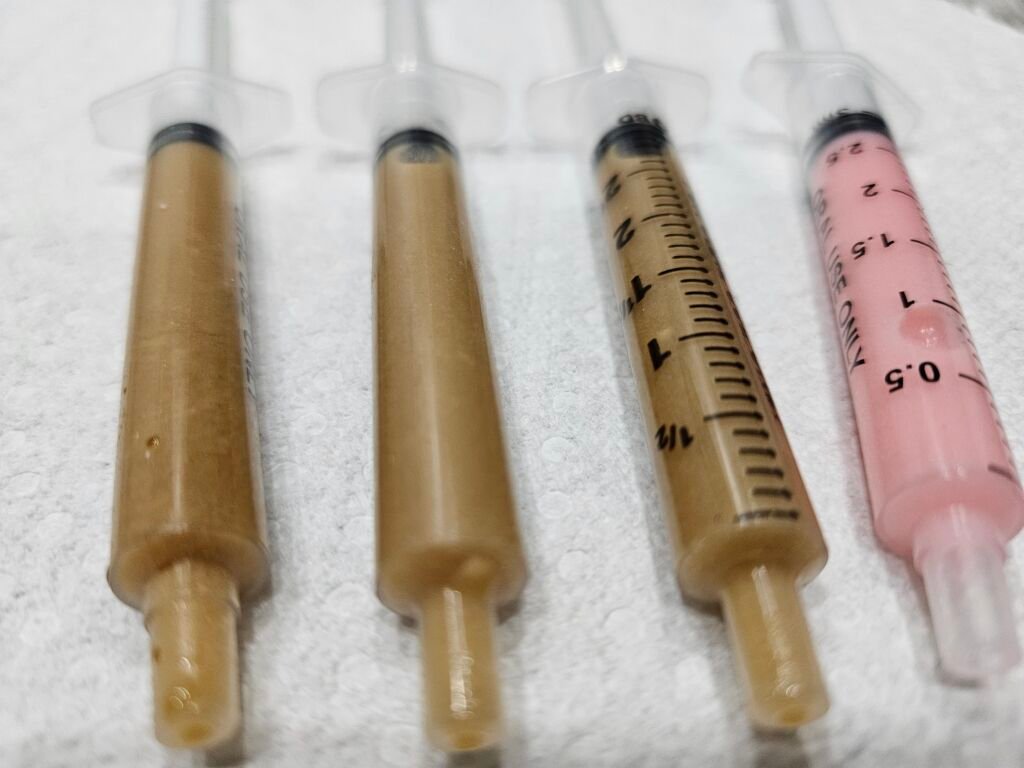
10. Pet Carrier or Transport Box:
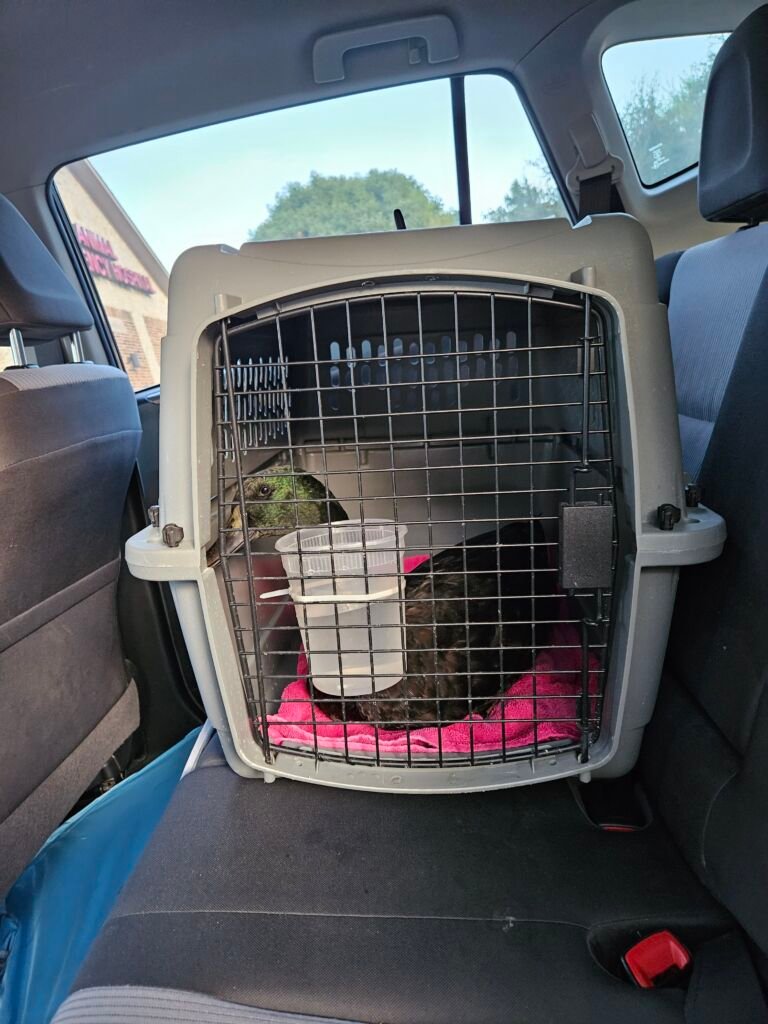
A sturdy and secure carrier is essential for safely transporting your duck to the veterinarian during emergencies, minimizing stress, and ensuring proper care en route. It provides a comfortable and secure environment for your duck during transportation, keeping it safe and calm during potentially stressful situations.
11. Book
Include a comprehensive reference book on duck health and first aid techniques to guide you in administering care to your feathered friends. A well-written book, like The Ultimate Pet Duck Guidebook, provides valuable insights into recognizing signs of illness or injury, administering first aid treatments, and knowing when to seek professional veterinary care. With clear instructions and illustrations, it becomes a trusted resource in emergencies, helping you make informed decisions for your duck’s well-being.
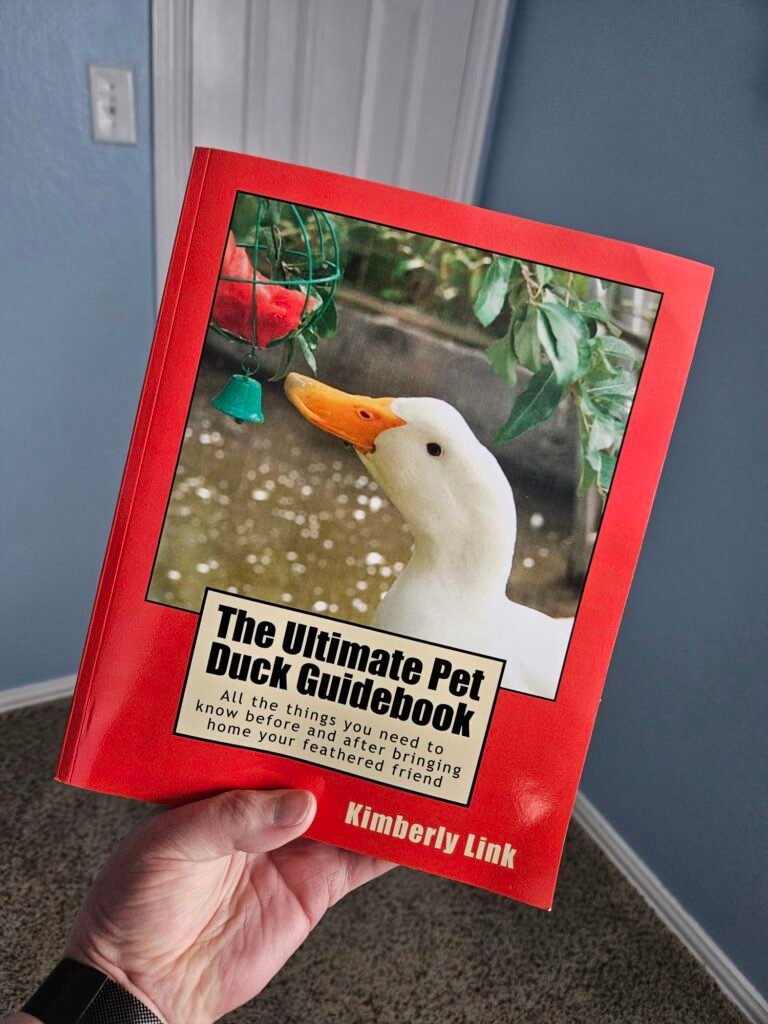
12. Scale
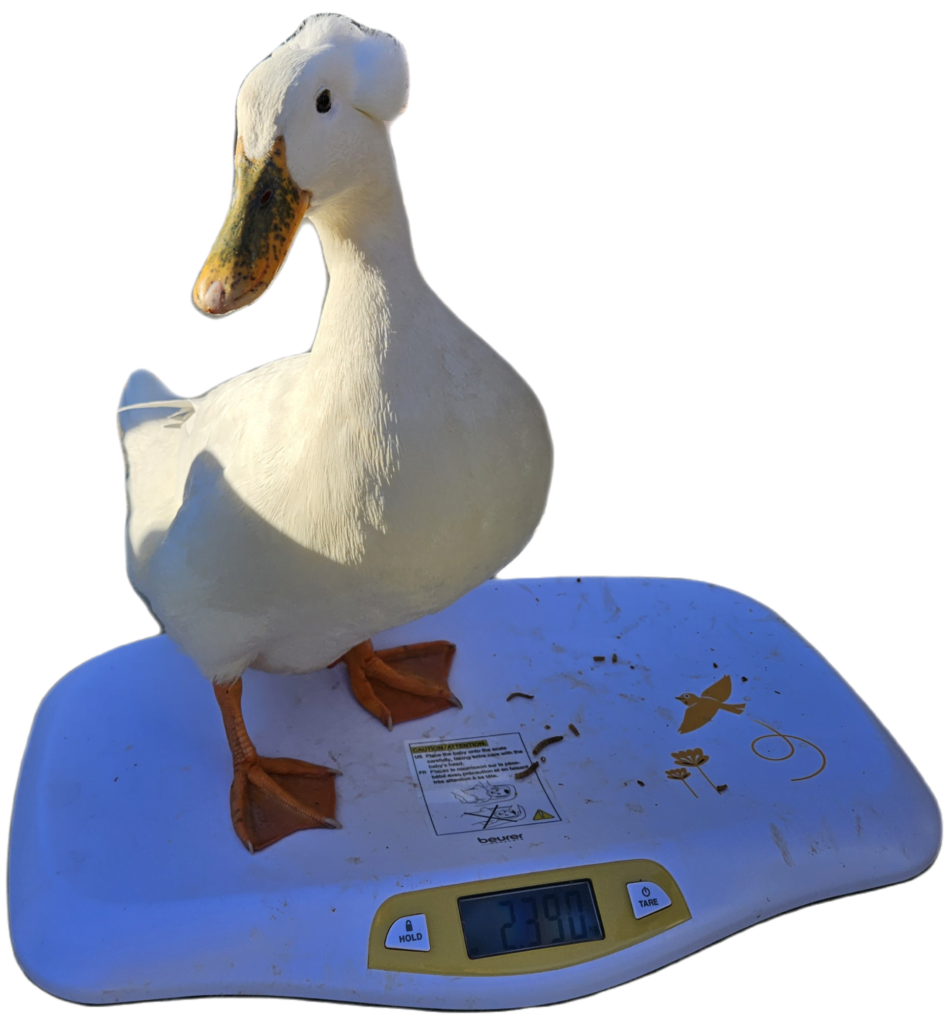
Helpful for monitoring your duck’s weight, which can indicate overall health and potential issues. Regular weigh-ins allow you to track your duck’s growth and detect any changes in weight that may signal health concerns, enabling early intervention and treatment. We love to use a baby scale for our ducks.
13. Intensive Care Unit
Prepare a designated area to provide intensive care to sick or injured ducks and ensure their best chance of recovery. An ICU setup allows you to create a controlled environment tailored to your duck’s specific needs, providing warmth, comfort, and medical support during critical periods. We love to use foldable playpens for this purpose.

Supplemental Support: Enhancing Duck Health and Vitality
Ducks also require supplements to support their health. Illnesses and diseases can take a toll on their small bodies. Here’s a compilation of the most common types of supplements you should keep readily available as part of your duck first aid kit.
14. Electrolyte Solution:
Provides essential nutrients and energy for sick or weak ducks, aiding in their recovery from illness or stress. It’s a concentrated source of vitamins and minerals, offering quick absorption and support for ducks in need of nutritional supplementation. It is also great to give your ducks during a hot summer day to help them stay hydrated. We have different electrolyte solutions we like, Save-a-chick, Hydro-Hen, and VitaMetz.
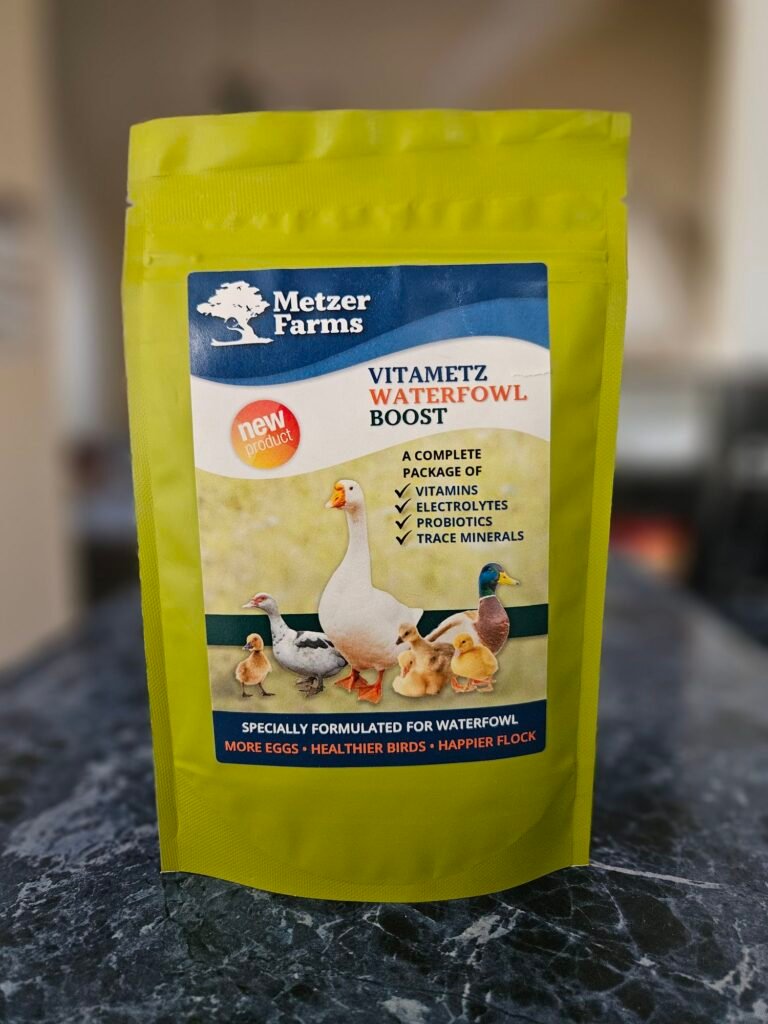
15. Nutri Drench:

This liquid supplement provides essential nutrients and energy for sick or weak ducks, aiding in their recovery from illness or stress. Nutridrench delivers a quick shot of energy and essential nutrients straight into your ducks’ bloodstream within minutes. It’s packed with vitamins (A, D, and E), trace minerals, amino acids, and glucose—everything your duck needs to fight stress and thrive. We used it for Simon when he lost so much weight after his phallus amputation.
16. Avian Calcium:
Calcium is important for maintaining bone health and egg production in ducks, particularly during periods of growth or laying. A Calcium deficiency can lead to health issues such as soft eggshells or bone deformities, making avian calcium supplements essential for supporting your duck’s overall health and reproductive function.
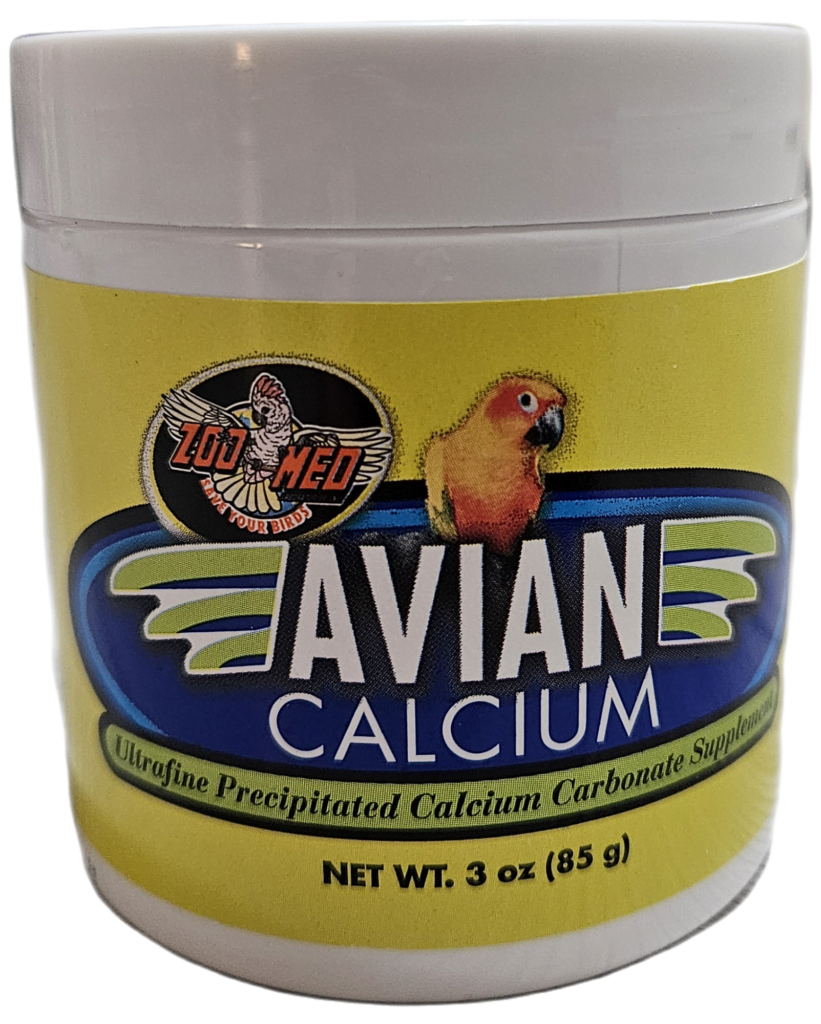
17. Niacin:

Niacin is essential for preventing niacin deficiency in ducks, promoting healthy growth, and preventing leg problems. It plays a crucial role in duckling development, supporting proper bone and muscle formation and preventing conditions like leg weakness or paralysis. Niacin can be applied to ducks’ food or drinking water. Some people like pure niacin, as we do, and others prefer Brewers Yeast.
Duck Wound Care Essentials and Remedies
Treating wounds is a key part of duck care, especially since our feathered friends can sometimes be a bit clumsy. Plus, dealing with issues like Bumblefoot is all too common in the duck world. Here, we’ll share the products that have been real lifesavers in our journey of duck care.
18. Cornstarch or Styptic Powder:

It is quick and effective in stopping minor bleeding from cuts or wounds, essential for swift first aid treatment. Applying a small amount of cornstarch or styptic powder to the affected area helps to promote clotting and prevent excessive bleeding, facilitating faster healing for your duck.
19. Triple Antibiotic Ointment:
It is effective in preventing infection and promoting healing in minor cuts or abrasions on your duck’s skin. It provides a protective barrier against bacteria and contaminants, reducing the risk of complications and facilitating faster recovery for your duck. We love to use it in minor cases of Bumblefoot.
20. Wound Spray:
Specifically formulated wound sprays like Veterycin or Rooster Booster can aid in the healing process of minor wounds and abrasions in ducks. These sprays contain antimicrobial agents that help prevent infection and promote tissue regeneration, supporting your duck’s natural healing process. Also very good in early cases of Bumblefoot.
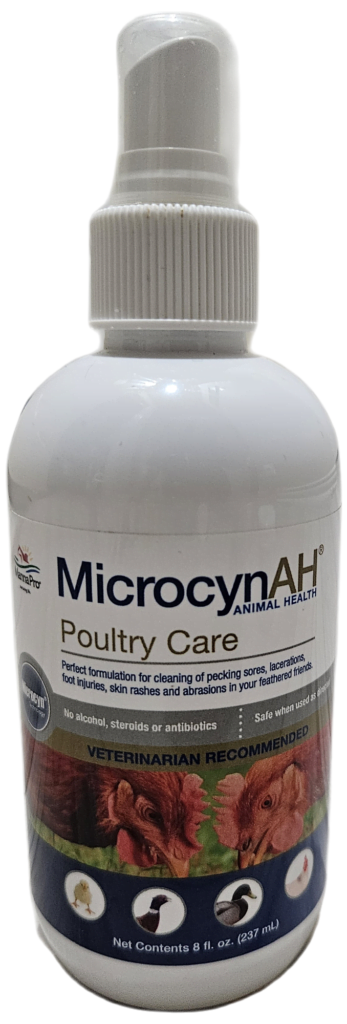
21. Silver Spray or Ointment:

Colloidal silver-based products or PetSilver Wound Spray have antimicrobial properties, aiding in wound healing and preventing infections in ducks. They provide a natural alternative to traditional antibiotics, supporting your duck’s immune system and promoting faster recovery.
22. Epsom Salt Poultice:
This provides additional relief for localized swelling or inflammation in ducks’ feet or joints. Applying an Epsom salt poultice directly to the affected area helps draw out toxins and reduce inflammation, supporting your duck’s recovery from injuries or ailments. It is very useful for stubborn cases of Bumblefoot.
23. Betadine Solution:
Betadine is an antiseptic solution useful for disinfecting wounds and preventing infection in ducks. Dilute betadine solution can be safely applied to cuts, abrasions, or other minor injuries, helping to cleanse the area and promote healing in your duck. We love to use it when our ducks have bumblefoot. Simply prepare a solution in water and soak your duck’s feet for 10 to 15 minutes in it.
24. Chlorhexidine
Chlorhexidine is a potent antiseptic solution widely used for disinfecting wounds and preventing infections in ducks. Its antimicrobial properties make it effective in cleansing wounds and promoting healing, ensuring optimal care for your feathered companions.
25. Bag Balm:
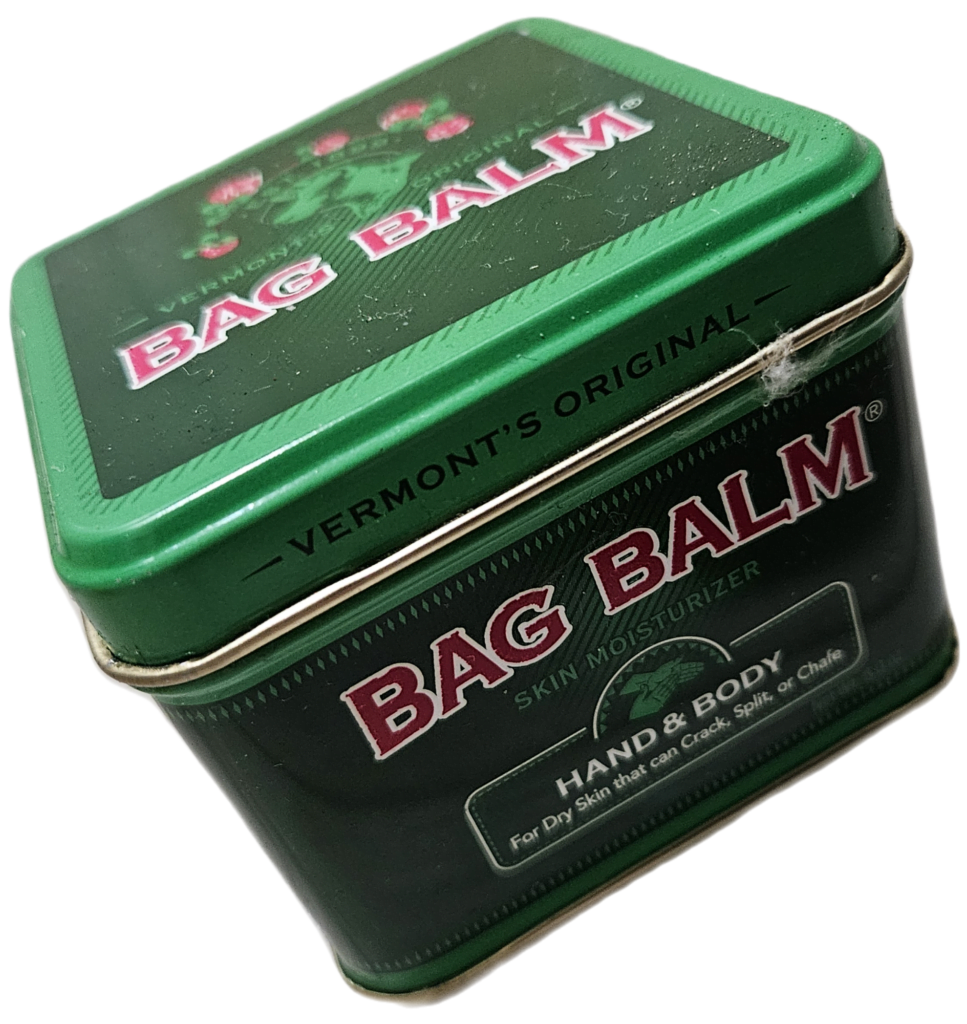
Bag Balm helps soothe and protect ducks’ skin from minor irritations, which is particularly useful for areas prone to dryness or chafing. Its moisturizing properties help prevent dry, cracked skin, promoting comfort and well-being for your ducks.
Miscellaneous Marvels and Must-Haves:
Within this category, you’ll find products that didn’t quite fit into the other sections but are just as crucial to duck care and should not be missed in your duck first aid kit.
26. Lubricant:
Essential for assisting with the gentle manipulation and repositioning of prolapsed tissue in ducks, reducing discomfort and facilitating the treatment process. Applying a lubricant (like KY Jelly Personal Lubricant) to the affected area helps ease the passage of tissue, aiding in the successful reduction of the prolapse while minimizing trauma to the duck.
27. Antimicrobial Eye Wash:
Gentle eye washes can effectively clean and soothe your duck’s eyes in case of irritation or debris. Whether it’s dust, pollen, or foreign particles, an antimicrobial eye wash helps flush out contaminants and reduce inflammation, promoting clear and healthy eyes for your duck.
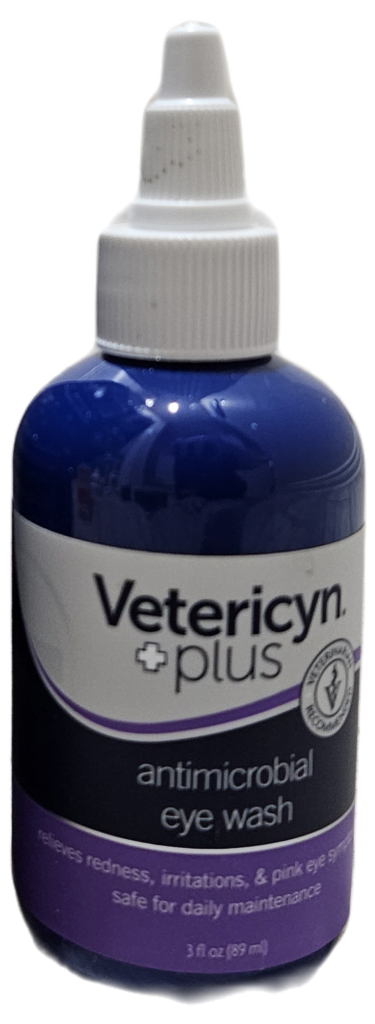
28. Terramycin Antibiotic Ophthalmic Ointment
Terramycin Antibiotic Ophthalmic Ointment is a must-have for your duck first aid kit. This ointment effectively treats eye infections, like conjunctivitis, ensuring your ducks’ eyes stay healthy and clear. Quick and easy to apply, Terramycin helps prevent minor issues from becoming serious problems. Keeping this ointment on hand means you can swiftly address eye issues, ensuring your feathered friends are always in top condition!
29. VetRX:
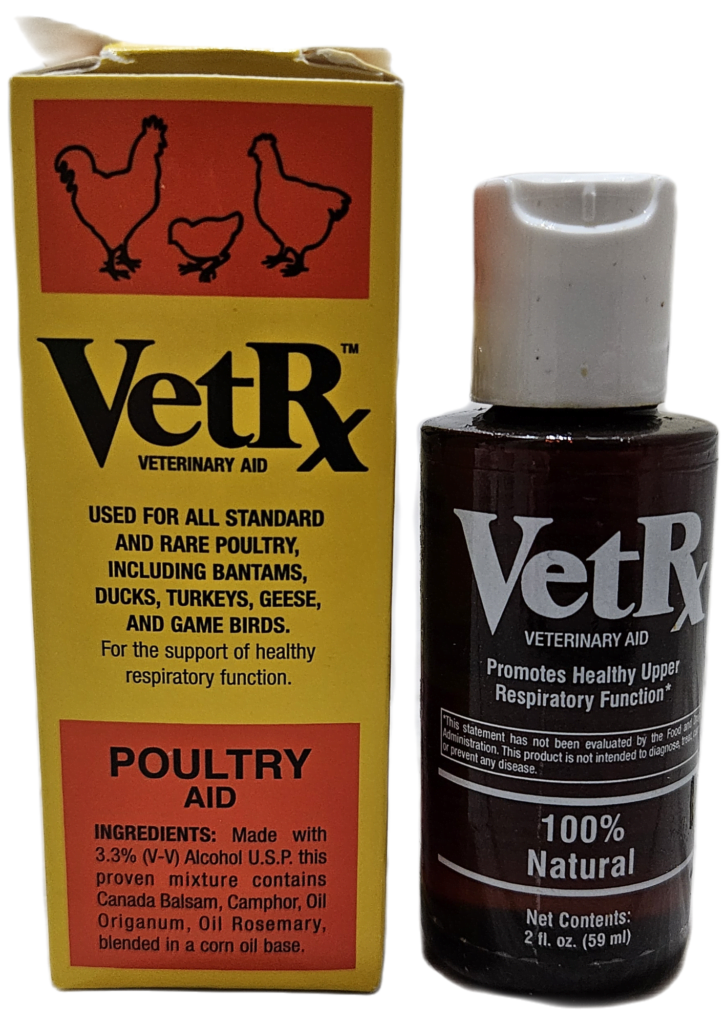
A natural remedy for respiratory issues and minor skin irritations in ducks, providing relief and support for their recovery. VetRX‘s soothing vapors can help alleviate congestion and respiratory discomfort, while its antiseptic properties aid in treating minor skin irritations or abrasions.
30. Epsom Salt:
It can be used in foot soaks to relieve discomfort and swelling in ducks with foot injuries or bumblefoot. Epsom salt‘s anti-inflammatory properties help reduce swelling and pain, promoting comfort and healing for your duck’s feet.
31. Activated Charcoal Powder
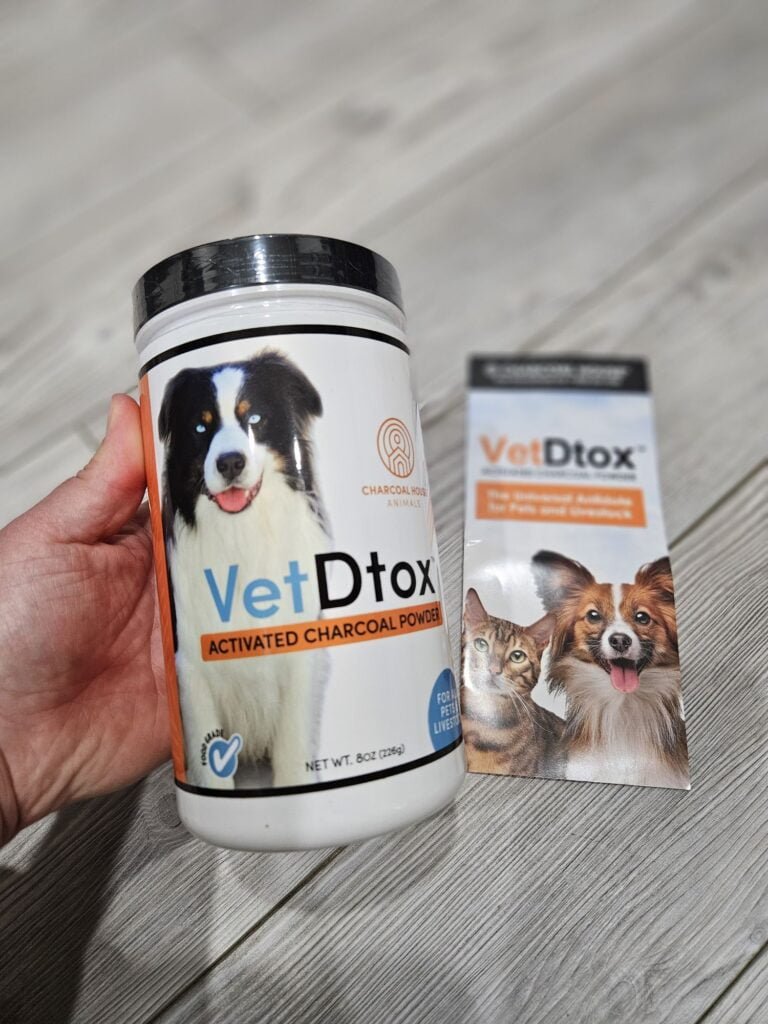
Activated Charcoal Powder is an essential item for your duck first aid kit. It’s highly effective in treating toxin ingestion, as it binds to poisons and prevents them from being absorbed into the bloodstream. Quick to administer and powerful, activated charcoal can be a lifesaver in emergencies, ensuring your ducks stay healthy and safe from accidental poisoning. Keep this handy remedy handy to provide swift and effective treatment whenever needed!
Never use these for your Ducks:
- Blue Kote: This is not suitable for ducks due to potential toxicity. While commonly used for wound treatment in other animals, Blue Kote contains ingredients that can be harmful if ingested by ducks, making it unsuitable for use in avian first aid.
- Petroleum-based jelly: It can be harmful to ducks if ingested. While petroleum jelly has various uses in human and pet care, it’s not safe for ducks if ingested, as it can cause digestive issues or respiratory problems. Avoid using petroleum-based products on your ducks to prevent potential harm.
By regularly checking and updating your duck’s first aid kit, you ensure that items haven’t expired and can promptly replace any used supplies. Always consult with a qualified avian veterinarian for guidance on treating your duck’s injuries or illnesses, as they can provide expert advice tailored to your duck’s specific needs. With a well-stocked first aid kit and professional guidance, you’ll be well-equipped to handle any health concerns that arise with your feathered companions, promoting their health, happiness, and well-being.
Now we want to hear from you if we have missed anything important. Let us know in the comments below! ⬇️

Get Your FREE Duck First Aid Kit Checklist Today!
We know that this is a very long list, and it might be tough to remember everything. But no worries—we have you covered. We have created a Duck First Aid Kit Checklist. You can download it for FREE! Just fill out the form below to get immediate access.


